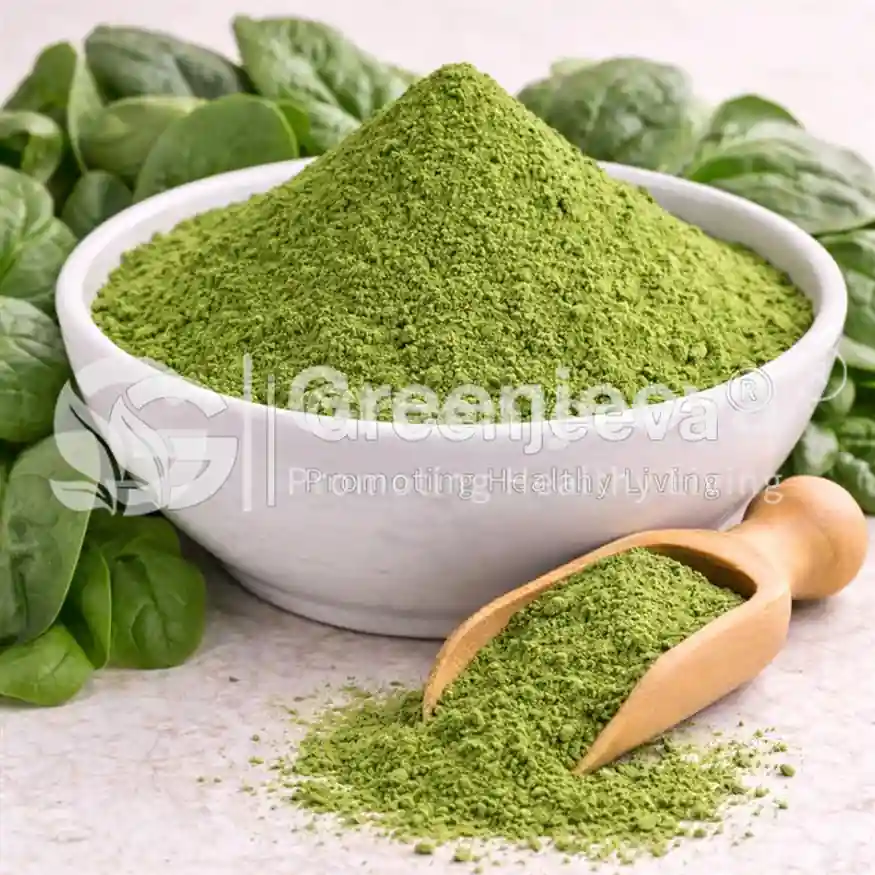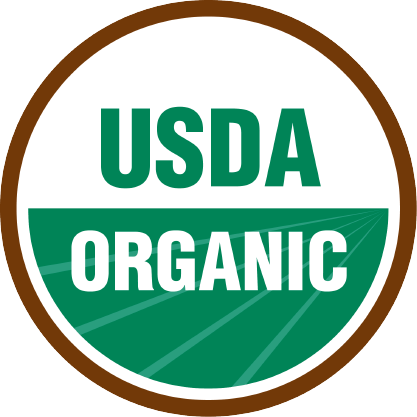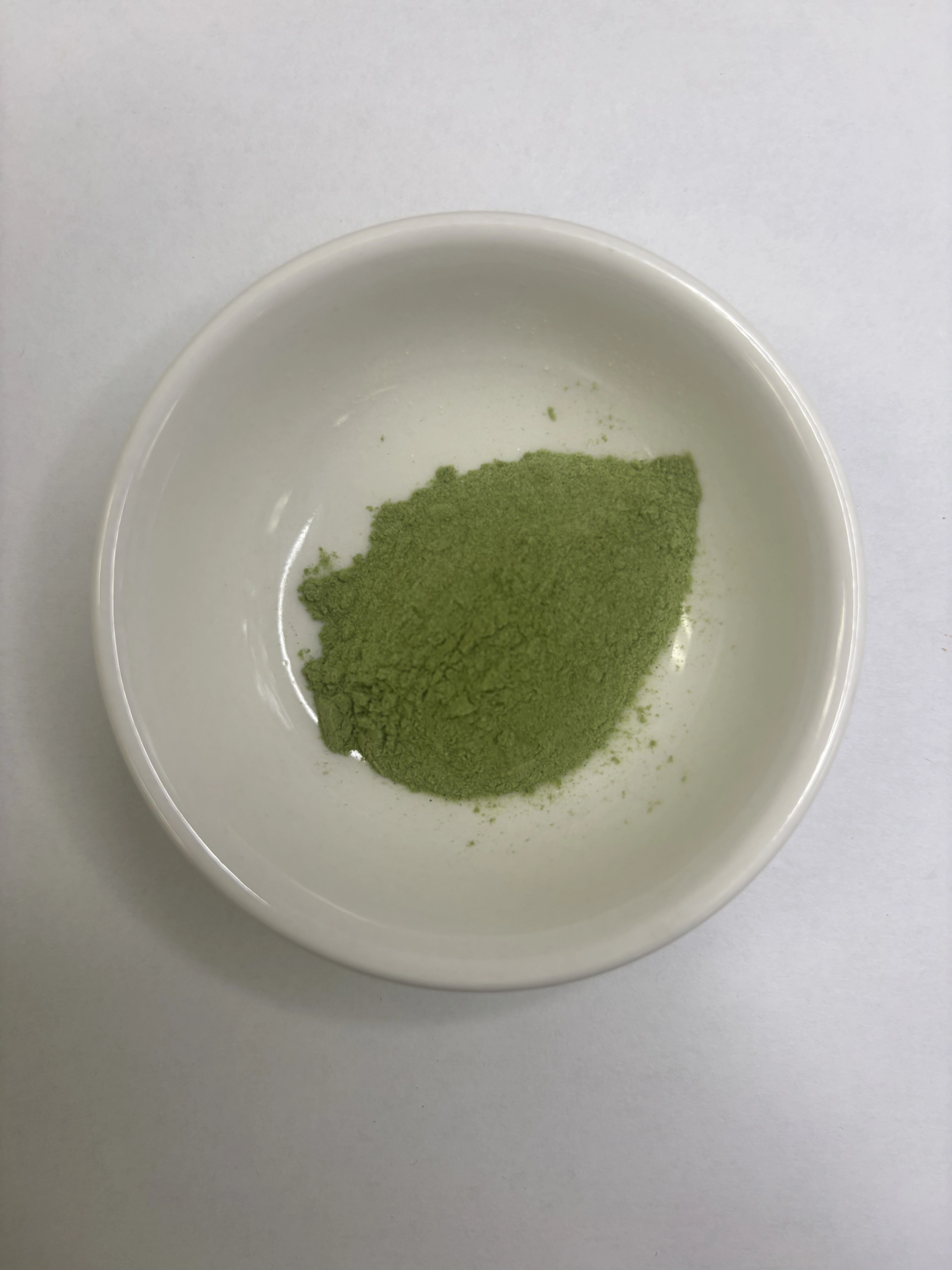



| Quantity | Price | Save |
|---|---|---|
| XXXXX | XXXXX | 5.00% |
| XXXXX | XXXXX | 10.00% |
| XXXXX | XXXXX | 15.00% |
Want high volume of this product? Please place your Bid.
You can view and download product documents, access detailed product information, place orders, request samples, chat with our experts, and much more.
Botanical Name: Spinacia oleracea
Plant Part Used: Leaf
Processing Method: drying and fine grinding
Green Jeeva’s Organic Spinach Powder is produced from carefully selected leaves of Spinacia oleracea, a leafy green botanical traditionally cultivated across diverse agricultural regions. The spinach leaves are harvested at optimal maturity, gently washed, dried under controlled low-temperature conditions, and finely milled to maintain natural green color integrity and particle uniformity suitable for industrial processing.
As a trusted organic spinach powder bulk supplier, we support manufacturers requiring specification-driven sourcing, traceability, and consistent supply continuity. Our spinach leaf powder is cultivated under certified organic farming systems and processed in controlled facilities to ensure batch-to-batch consistency for large-scale industrial applications.
Organic Spinach Powder is widely utilized across multiple manufacturing sectors:
• Nutraceutical & Dietary Supplement Manufacturing: Capsules, tablets, powdered blends, and multi-ingredient systems
• Functional Food & Beverage Manufacturing: Smoothie mixes, nutrition blends, powdered beverages, and fortified foods
• Food Processing & Culinary Manufacturing: Seasoning blends, pasta formulations, bakery mixes, and snack products
• Herbal & Botanical Formulations: Green blends and plant-based compound systems
• Animal Nutrition Manufacturing: Botanical inclusion in specialty feed formulations
Manufacturers sourcing bulk spinach powder in the USA prioritizes mesh consistency, color retention, and regulatory documentation support for procurement validation.
Botanical & Phytochemical Profile
Organic Spinach Powder naturally contains:
• Chlorophyll pigments responsible for its characteristic green coloration
• Naturally occurring plant polyphenols
• Dietary fiber components present in leafy botanical matrices
• Plant-based phytoactives supporting botanical authenticity in formulations
Whole spinach leaf powder preserves the complete botanical matrix, making it suitable for manufacturers prioritizing ingredient integrity over isolated fractions.
Formulation & Manufacturing Advantages
When incorporated into finished products, Organic Spinach Powder offers:
• Natural green color contribution for dry blend systems
• Neutral-to-mild vegetal flavor profile adaptable across formulations
• Compatibility with encapsulation, tableting, and powder blending operations
• Stable performance under standard food and supplement manufacturing conditions
It is commonly used in clean-label formulations where botanical traceability and origin transparency are key sourcing factors.
Supply Chain & Quality Advantages
• Certified organic cultivation aligned with international standards
• Available as bulk spinach powder with scalable commercial volumes
• Full documentation including COA, MSDS, and specification sheets
• U.S.-based warehousing for efficient domestic distribution
• Supported by a reliable spinach powder manufacturer and bulk exporter network
Partnering with a qualified organic spinach powder bulk supplier in the USA ensures streamlined procurement, audit readiness, and consistent quality supply.
| Product Category: | Super Greens, Organics |
| Product Sub Category: | Herbs-Spices-Seasonings |
| Product Mix Category: | Organic RM powders |
| Main Producing Countries | Spain, Italy, China and Japan |
It is a free-flowing powder that is green-colored and with a characteristic odor.
No, E.coli & salmonella are absent in this ingredient.
We can provide organic spinach powder of several mesh sizes based on the end application. Our most common mesh size for this product is 40-80 mesh.
Our Products are tested in globally recognized third-party labs like Eurofins, SGS &TUV. The products are tested for pesticides as per the USDA 561 list of prohibited pesticides and European Union Minimum Residual limits (MRLs) on pesticides. When pesticides are found below the level of detection (LOD), we accept products.
The moisture content of the product facilitates the growth of microorganisms in the product, increasing the risk of biological hazards. Moisture content below 5% in our product ensures better control of microbial growth and, in turn, increased shelf life. Therefore, we provide organic spinach powder with a moisture content below 5%.


Organic Spinach Powder is widely utilized across multiple manufacturing sectors:
Capsules, tablets, powdered blends, and multi-ingredient systems
Seasoning blends, pasta formulations, bakery mixes, and snack products

Smoothie mixes, nutrition blends, powdered beverages, and fortified foods
Green blends and plant-based compound systems
Botanical inclusion in specialty feed formulations
Manufacturers sourcing bulk spinach powder in the USA prioritize mesh consistency, color retention, and regulatory documentation support for procurement validation.
Organic Spinach Powder naturally contains:

Chlorophyll pigments responsible for its characteristic green coloration
Naturally occurring plant polyphenols
Dietary fiber components present in leafy botanical matrices
Plant-based phytoactives supporting botanical authenticity in formulations
Whole spinach leaf powder preserves the complete botanical matrix, making it suitable for manufacturers prioritizing ingredient integrity over isolated fractions.
When incorporated into finished products, Organic Spinach Powder offers:
Natural green color contribution for dry blend systems
Neutral-to-mild vegetal flavor profile adaptable across formulations
Compatibility with encapsulation, tableting, and powder blending operations
Stable performance under standard food and supplement manufacturing conditions
It is commonly used in clean-label formulations where botanical traceability and origin transparency are key sourcing factors.


Certified organic cultivation aligned with international standards
Available as bulk spinach powder with scalable commercial volumes
Full documentation including COA, MSDS, and specification sheets
U.S.-based warehousing for efficient domestic distribution
Supported by a reliable spinach powder manufacturer and bulk exporter network
Partnering with a qualified organic spinach powder bulk supplier in the USA ensures streamlined procurement, audit readiness, and consistent quality supply.